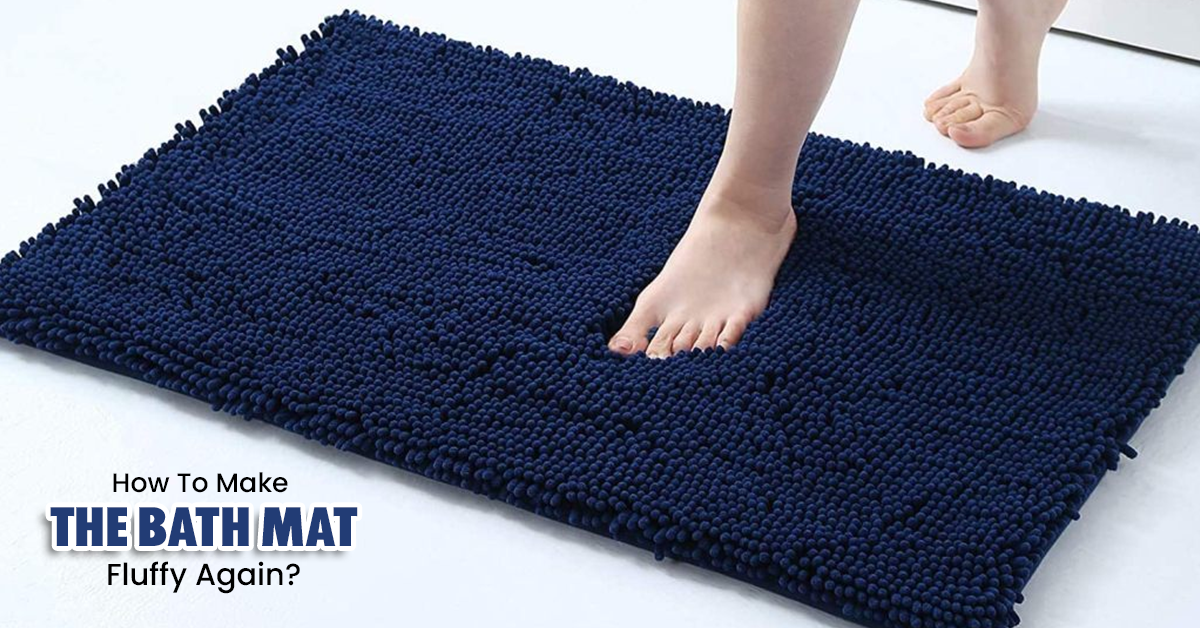Rugs are essential to our homes, adding warmth, comfort, and style to any space. However, a smelly carpet can quickly turn your cosy haven into an unpleasant environment. Whether it's due to moisture, pet accidents, food spills, or lingering odours from the environment, tackling rug odours is essential for maintaining a fresh and inviting home. In this comprehensive guide, we'll explore the reasons behind that unpleasant aroma wafting from your rug and provide practical solutions to banish the stink for good.
Why Does Your Rug Smell?
Moisture and Mould

One of the most common reasons for a smelly rug is moisture accumulation. Rugs are exposed to dampness from spills, high humidity, or improper drying after cleaning, creating an ideal mould and mildew growth environment. These fungal organisms thrive in moist conditions and emit musty odours that can permeate your rug and the surrounding area. Shop shaggy rugs for living room at Inspire Homeware.
Pet Accidents and Stains

Pets are beloved family members, but their accidents can leave lasting odours on your rugs. Urine, feces and vomit contain strong-smelling compounds that penetrate rug fibres, leading to persistent odours. Even if accidents are promptly cleaned up, traces of odour-causing substances may remain, especially if not treated with suitable cleaning agents.
Food and Beverage Spills

Spills are inevitable; when food or beverages come onto your rug, they can leave behind more than stains. The organic matter in food and drinks provides a breeding ground for bacteria, which can produce unpleasant odours as they decompose. Spilled liquids can seep deep into rug fibres, challenging odour removal if not addressed promptly and effectively.
Smoke and Odours from the Environment
Environmental factors like cigarette smoke, cooking fumes, and indoor air pollution can contribute to rug odours. Smoke particles and airborne pollutants can settle onto rug fibres, causing them to absorb odours over time. Additionally, rugs placed in high-traffic areas or near entrances may trap odours from shoes and outdoor pollutants, further exacerbating the problem. Shop cashmere rugs at Inspire Homeware.
Understanding the underlying causes of rug odours is essential for implementing effective odour-removal strategies. By addressing these issues and adopting proper cleaning and maintenance practices, you can ensure your rug remains fresh and odour-free for years.
How Do You Get Rid Of Smelly Rug?
- Gathering Necessary Supplies: Before you embark on your rug-cleaning journey, gather supplies such as a vacuum cleaner, mild detergent, vinegar, baking soda, and essential oils.
- Pre-treating Stains and Spots: Treat any visible stains or spots on your rug before proceeding with a deeper clean to ensure effective odour removal.
- Ventilating the Area: Open windows and doors to allow fresh air to circulate, eliminating odours.
DIY Cleaning Solutions
- Vinegar and Baking Soda: A vinegar and baking soda mixture is a potent natural cleaner that can effectively neutralise odours.
- Enzymatic Cleaners: Enzymatic cleaners break down organic matter, such as pet stains and odours, at a molecular level, leaving your rug smelling fresh and clean.
- Essential Oil Blends: Essential oils like lavender, tea tree, or citrus can be added to your cleaning solution for a pleasant, natural fragrance.
Professional Cleaning Options
- Steam Cleaning Services: Steam cleaning penetrates deep into rug fibres, removing dirt, stains, and odours effectively.
- Dry Cleaning Methods: Dry cleaning is a gentle yet effective option for delicate rugs that cannot withstand moisture.
- Hiring a Professional Rug Cleaner: Professional rug cleaners have the expertise and equipment to tackle even the toughest odours, restoring your rug to its former glory.
Dealing with Specific Odour Types
- Pet Urine and Fecal Odours: Use enzymatic cleaners specifically formulated to eliminate pet odours, and consider professional cleaning for severe cases.
- Musty and Moldy Smells: Treat mould and mildew promptly with vinegar or commercial mould removers to prevent further damage and odours.
- Food and Beverage Odours: Blot up spills immediately and use a combination of vinegar and baking soda to neutralise odours.
How Do I Keep My Rug Smelling Good?
- Regular Vacuuming: Vacuum your rug at least once a week to remove dirt, dust, and allergens contributing to unpleasant odours.
- Using Rug Pads: Rug pads protect your floors and rug and provide an additional barrier against moisture and odours.
- Implementing No-Shoe Policies: Shoes can track in dirt, debris, and odours from the outside, so encourage family members and guests to remove their shoes before entering your home.
Is There Any Need for Special Care for Different Rug Materials?
- Wool Rugs: Wool rugs require gentle cleaning methods to prevent damage to the fibres and maintain their natural properties.
- Synthetic Fiber Rugs: Synthetic rugs are more durable and can withstand harsher cleaning, but always check the manufacturer's guidelines.
- Oriental and Delicate Rugs: Delicate rugs require extra care and should be cleaned by professionals to avoid damage.
Tips for Maintaining Freshness:
- Regular Airing Out: Hang your rug outside on a sunny day to let it air and refresh naturally.
- Rotating the Rug Position: Rotate your rug periodically to ensure even wear and prevent odours from concentrating in one area.
- Immediate Spot Cleaning: Deal with spills and stains promptly to prevent them from setting into the fibres and causing odours.
Conclusion
A fresh-smelling rug creates a welcoming and comfortable home environment. By understanding the causes of rug odours and implementing effective cleaning and maintenance strategies, you can banish unpleasant smells and enjoy a clean, fresh living space. Shop printed rugs at Inspire Homeware.
FAQs
How often should I clean my rug?
Regular vacuuming and spot cleaning are essential, but aim to clean your rug deep every 6-12 months, depending on its use and exposure to odours.
Can I use bleach on my rug to remove odours?
Bleach can damage rug fibres and alter colours, so it's not recommended. Instead, opt for gentler cleaning methods like vinegar or enzymatic cleaners.
Are there any home remedies for tackling tough odours?
Vinegar, baking soda, and essential oils are effective home remedies for neutralising tough odours without harsh chemicals.
Is professional cleaning necessary for all types of rugs?
While professional cleaning is recommended for delicate and antique rugs, you can clean most at home with the right supplies and techniques.
How can I prevent odours from returning after cleaning?
Implementing regular cleaning and maintenance routines, such as vacuuming, airing out, and using rug pads, can help prevent odours from returning.






















































Leave a comment
This site is protected by hCaptcha and the hCaptcha Privacy Policy and Terms of Service apply.